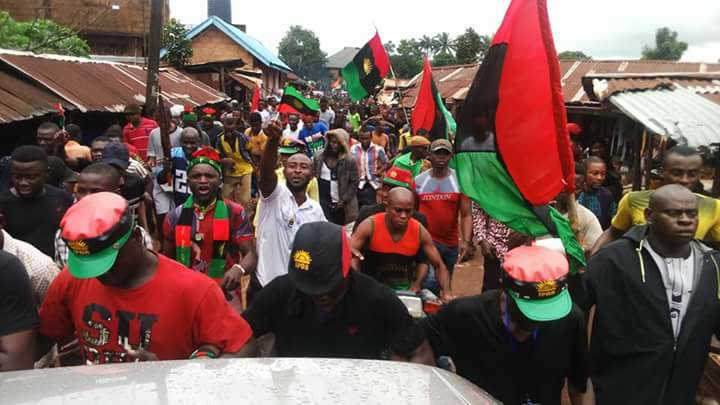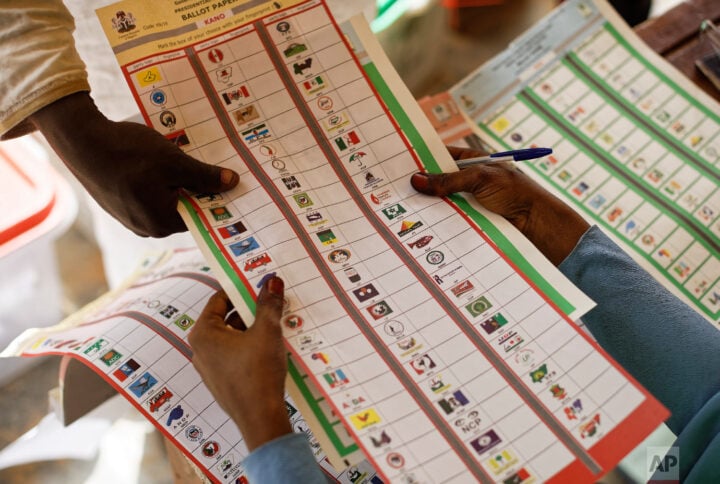Last week, an incredible development occurred wherein 75 organisations from northern Nigeria placed a N100m bounty on the fugitive leader of the Indigenous Peoples of Biafra, Nnamdi Kanu.
The coalition, which called itself Northern Consensus Movement, ascribed its motivation to the need for Kanu to come and face his treason trial and answer for the alleged killing of northerners in the south-east states. It embarked on the ultra-vires mission of declaring Kanu wanted and calling for his repatriation, so he can be handed over to the authorities. Really? When did these organisations become the Nigeria police, which is empowered to designate suspects and declare them wanted?
Of course, as expected, frontline Igbo socio-cultural group, Ohanaeze Ndigbo, countered the NCM a couple of days later. The group’s spokesperson, Alex Ogbonnaya, told Saturday PUNCH that the northern coalition “…should place N100m bounty on the heads of leaders of Boko Haram, Fulani herdsmen, ISWAP, and other non-state actors, who are known to be terrorists”. He said Ohanaeze Ndigbo does not see IPOB as a terrorist organisation in the mould of the ones in the North and that injustice is the harbinger of the current state of security in the south-east.
Ohanaeze’s intervention, which, according to the Saturday PUNCH report, aligned with those of Senator Shehu Sani and a senior advocate of Nigeria, Ifedayo Adedipe, amply speaks to the hypocrisy of ethnic groups in the country. In a sense, Ohanaeze itself cannot be exempted from the average Nigerian’s disposition to defending, even justifying, everything represented by people or groups to which they have primordial affiliations no matter how grievous their acts may be. We do not seem to realise that this universal tendency for double standards is more injurious to the nation than legitimate agitations for justice, which organisations like IPOB stood for ab-initio. We shall return to this point presently.
Advertisement
As the Ohanaeze and Sani insinuated, the audacity of the northern coalition is comparable to the biblical analogy of someone who goes about with a log in his eyes complaining about the speck in another man’s eyes. The NCM complained that northerners were being killed in the South-East on the orders of Kanu, but gleefully forgets that certain groups terrorising the North over the last decade have killed and continue to kill northerners on the daily.
For instance, Boko Haram is recorded to have killed about 40,000 and displaced over two million people across the North-East and North-West over the past 12 years. Between 2016 and 2018, Amnesty International said that herdsmen killed 3,600 people across Nigeria. The International Centre for Investigative Reporting indicated that 1,500 people were killed in scuffles between herdsmen and farming communities in the North-Central and North-West parts of the country in 2020. Unconfirmed reports put the total number of deaths in the hands of killer herdsmen to 7,600! Over the years, the herder/farmer crisis has indeed gradually traversed every nook and cranny of the country to the effect that there is no part that has not suffered from the devastation that the conflict leaves in its wake. Curiously, unlike IPOB, we do not even know what they are fighting for!
So, the question to ask the NCM is: If northerners have been killed in the south-east as it speculates, can this be compared to the atrocities that the groups terrorising the North have inflicted on the country? If not, how come this bizarre coalition, (which wants to be seen as the defender of the rights of people of northern Nigeria to life) has not addressed perpetrators of the crimes that have visited the north over the past one decade? Are they saying that the termination of the lives of northerners by northerners is not a crime? That is not to speak of the abduction and killing of children and young adults from educational institutions.
Advertisement
But the hypocrisy goes across those who have elected to speak for different parts of the country. While leaders of every section justifiably advocate the emancipation of their people and pick on militant groups from outside their own environments, they most of the time, fail to speak to the roots of the problem. Whether it is Boko Haram or banditry, agitations for Yoruba nation or IPOB, there is the fundamental factor of the misgovernance that encourages the escalation of social tensions. Most of these ethnic jingoists fail to speak up about the grinding poverty in the country, the failure of the state to educate its children, the unprecedented level of unemployment all of which have congregated to frustrate Nigerians even with the most noble intentions.
A natural corollary of their failure to appreciate the origin of Nigeria’s current social dislocations is the conceited idea that the marginalisation and mistreatment of the people start and end with their individual part of the country. So, southerners do not contemplate what depravations people in the North suffer and vice versa.
The reality, however, is that every Nigerian, not belonging to the political class currently, gets the short end of the stick from the country. For most Nigerians depending on a legitimate means of income, life is now at the toughest regardless of which part of the country they come from or reside in. The poor man in Kaduna is not better than the one in Yenagoa or the one in Ilorin, Aba or Port Harcourt. They are all crying under the burden of an increasingly dim economy and that is the origin of the trouble now taking assorted opportunistic manifestations.
Ponder it for instance: how many gainfully employed people would ordinarily yield themselves to the use of Kanu or Sunday Igboho or even banditry? How many children who are busy in school would be lent to insurgency by their parents if life had meaning for those parents? Therefore, leaders of ethnic nationalities should desist from selling the failure of leaders from any part of the country as the collective burden of everyone from that part of the country. This assumption of vicarious liability is unhelpful and is it ungodly. Without Nigerians mobilising and fighting for the common goal in unity, individual efforts would remain futile.
Advertisement
Speaking about the NMC’s interest on NnamdiKanu, it is possible to speculate that without the help of the Federal Government, neither Kanu nor IPOB, whose secessionist agenda was last week denounced by the leaders of the South-East, would be as popular as they are now.
Before July 2015, for example, very little was known about Kanu. He began to gain attention when the National Broadcasting Corporation claimed to have successfully jammed the signals of his Radio Biafra. The hitherto unknown radio instantly gained global attention and more listenership as it daily spewed propaganda against the government.
Announcing the attempt to stop Radio Biafra from broadcasting was the first misstep of the government in my opinion. That attempt unwittingly validated the platform and its promoter. And Kanu, who may have desired nothing more than the attention the federal government gave him by slamming him with charges bordering on terrorism and treason and holding him for months, seized the opportunity. While in detention, he had an extended moment in the sun. Kanu and his mission gained traction across the world, governors, kings, and queens visited him in prison. By the time he would eventually be granted bail, he had become a tin god of some sorts. Government continued to provide free publicity services for Kanu and the Biafra idea by sending military men on several operations to the south-east. On one of those occasions, they allegedly stormed his father’s house and wreaked as much havoc as possible. Kanu then stole out of Nigeria. Things have gone from bad to worse since then leading to the formation of the Eastern Security Network.
What this should tell members of the northern coalition who have so much money to throw is that even if Kanu gets arrested and sentenced today, many more people like him will spring up to pursue the idea that the country is trying to stamp out. The solution to the myriad of problems in Nigeria is the manifestable commitment to ending all forms of injustices, improving the standard of living of the people, increasing the capacity of young people to be gainfully employed and listening to the grouses of every part of Nigeria with the aim of providing equitable solutions. All these tantrums are nothing but a waste of time, energy and resources.
Advertisement
Views expressed by contributors are strictly personal and not of TheCable.
Add a comment






